Republicans have become much more negative about the Court while Democrats have become more positive, but history suggests the partisan balance could quickly shift again
Last week, the U.S. Supreme Court made news with its decisions legalizing same-sex marriage and protecting the Affordable Care Act’s federal subsidies for those enrolled through all health care exchanges. According to the latest Economist/YouGov Poll, those are decisions the American public generally favors, but the public remains deeply divided in its opinion of the Court itself.
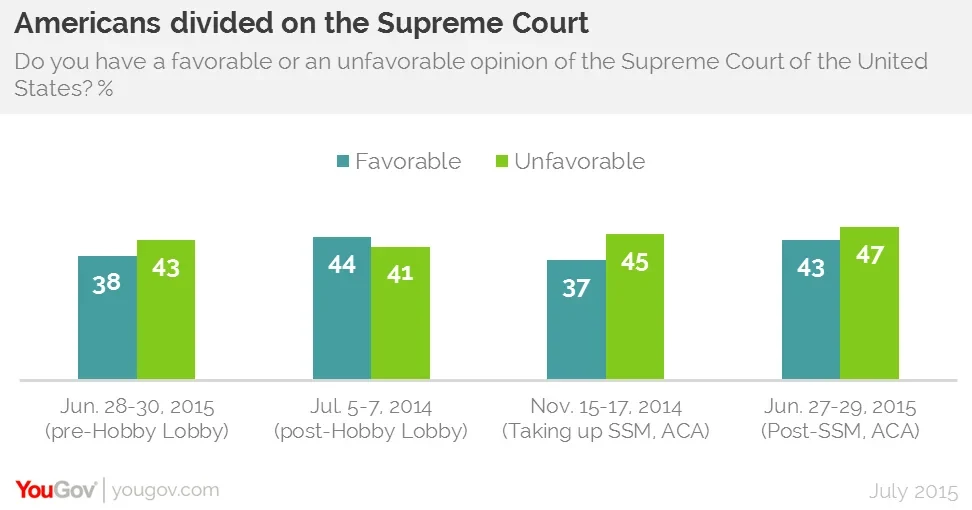
At the end of last year’s Supreme Court term, the Economist/YouGov Poll found a small boost in the rating of the Court after its decision in the Hobby Lobby case. The decision allowed businesses whose owners have “sincerely-held” religious beliefs to provide health insurance plans that did not cover contraception. That ratings boost for the Court was partisan in direction: Republicans became more positive about the Court; Democrats more negative. This week, however, after the Court upheld the ACA and legalized same-sex marriage) two out of three Democrats express favorable views of the Court, and just as many Republicans are unfavorable.
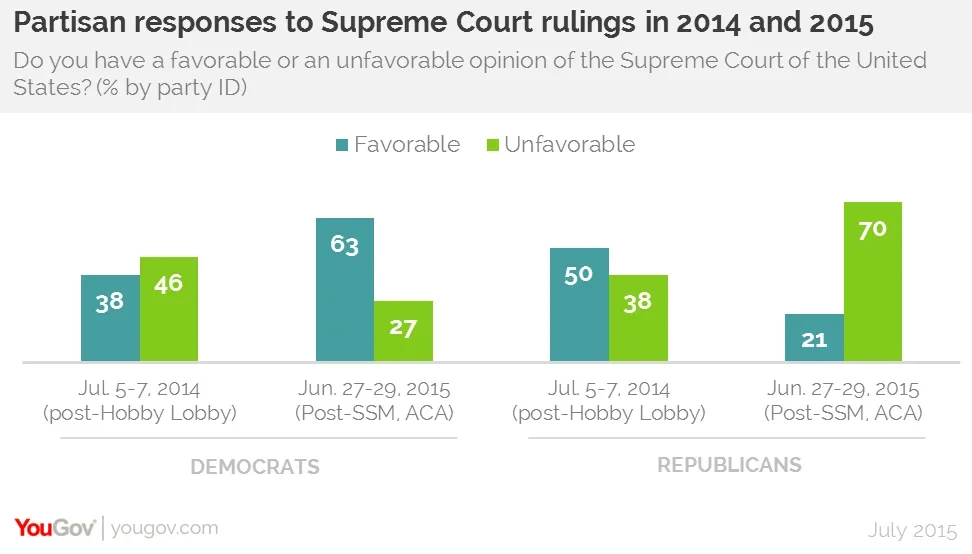
Last July, Republicans expressed their positive reactions to the Hobby Lobby decision. Now, after two decisions more appealing to Democrats, those evaluations have changed. But this shifting nature of opinion about the Court suggests this week’s findings also may not last long. Last November, a few months after the Hobby Lobby decision, opinions of both Democrats and Republicans about the Supreme Court were similar and equally positive and negative.
In this poll, 59% of those with favorable opinions of the Court approve of both of last week’s decisions, and only 10% approved of neither. Among those with unfavorable views, half approved of neither decision.
Chief Justice John Roberts, a Republican appointee who wrote the majority decision in the ACA case, King v. Burwell, is especially disliked by Republicans. More than twice as many Republicans in this week’s poll have an unfavorable assessment of him than have a favorable one. Democrats like Roberts, at least for now, but by a much narrower margin. These opinions of Roberts are even more partisan than they were in July 2012, just after the Supreme Court decision declaring the ACA constitutional. Then, Democrats were closely divided on Roberts, now they are positive.
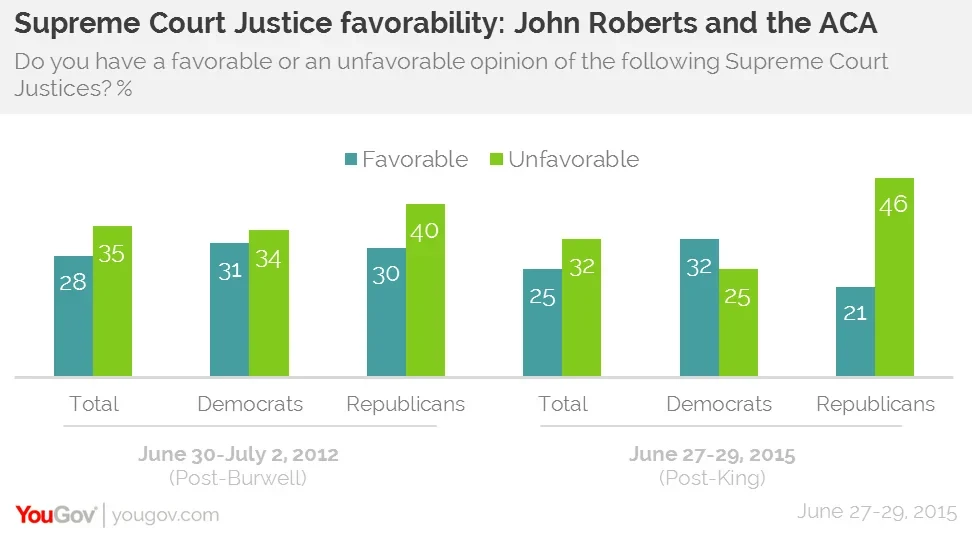
Democrats also hold a favorable opinion of another Republicans nominee, Anthony Kennedy, who sided with the government in King v. Burwell. Kennedy also wrote the majority’s opinion in Obergefell v. Hodges, which legalized same-sex marriage throughout the country. Although more than four in ten (Democrats and Republicans) aren’t sure what to think about Kennedy, Democrats are twice as likely to give Kennedy favorable as unfavorable evaluations. Republicans are unfavorable.
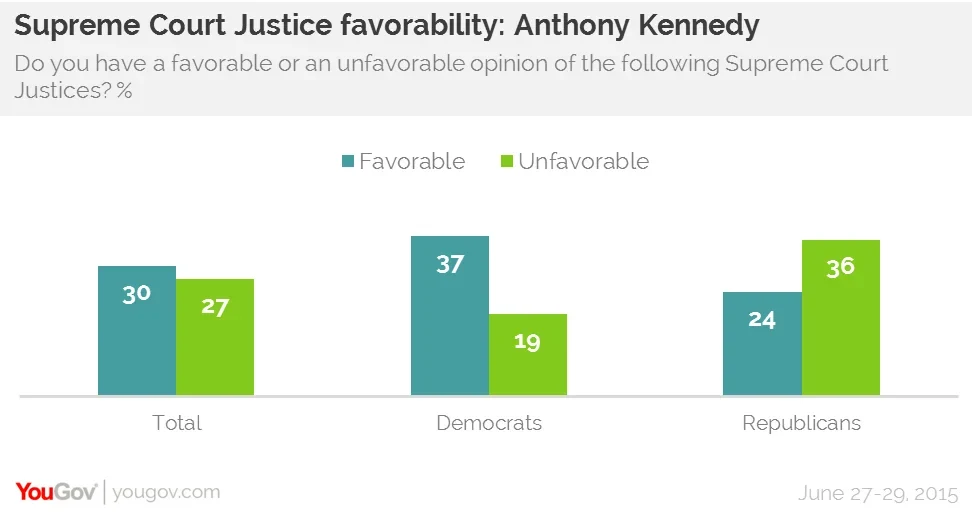
For Republicans, the Court’s two most consistent conservatives, Justices Clarence Thomas and Antonin Scalia, are the most popular. They are also among the best-known. The other GOP appointee, Samuel Alito is liked by Republicans, but is much less well-known.
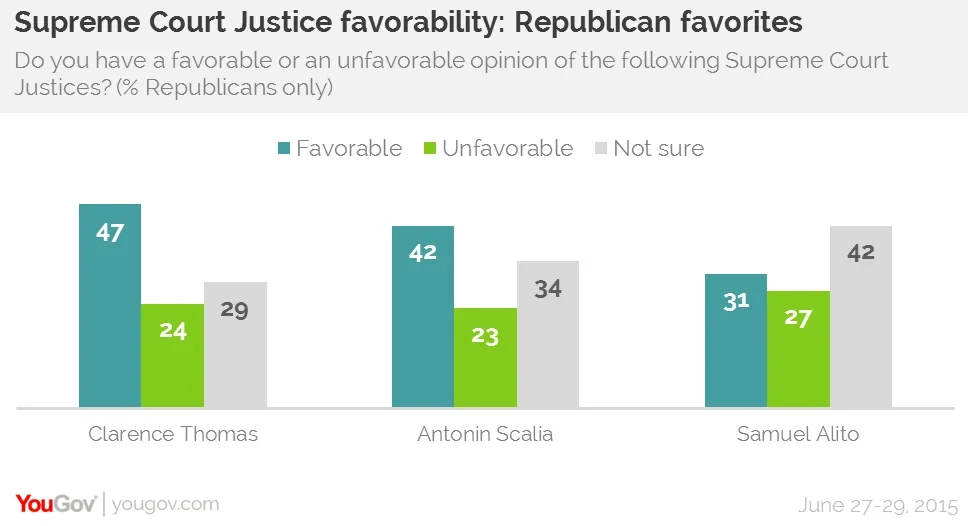
Overall, Americans are divided on the Court’s chief conservatives. Democratic appointees are all liked by Democrats, disliked by Republicans.
Like overall opinions about the Court, views of its ideological character may also shift based on the reaction to specific decisions. In this week’s poll, after two close rulings that were perceived as liberal, Americans are more likely to say the Court’s political viewpoint is liberal than they are to say it is conservative – and it is Republicans who especially see a liberal Court. Nearly two out of three Republicans think the Court today has a liberal political viewpoint.
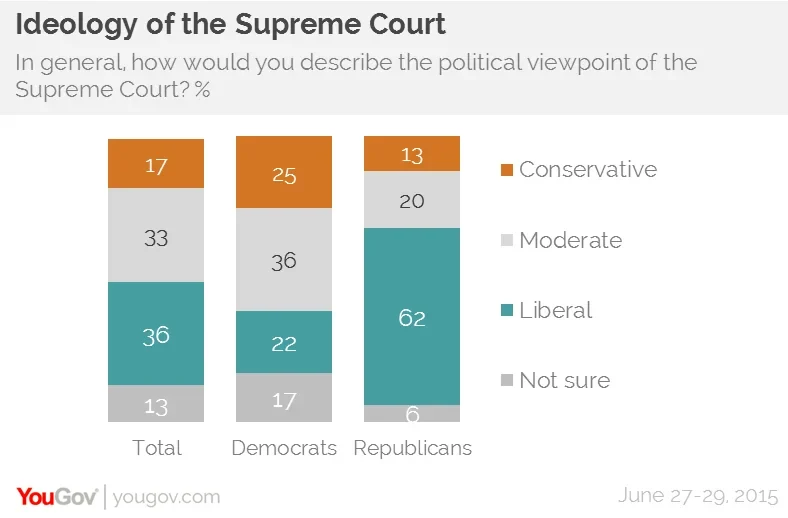
Many Republicans this week aren’t sure where to place Kennedy and Roberts ideologically: but liberal and moderates ratings outweigh conservative rating for both men.
Economist/YouGov poll archives can be found here.








